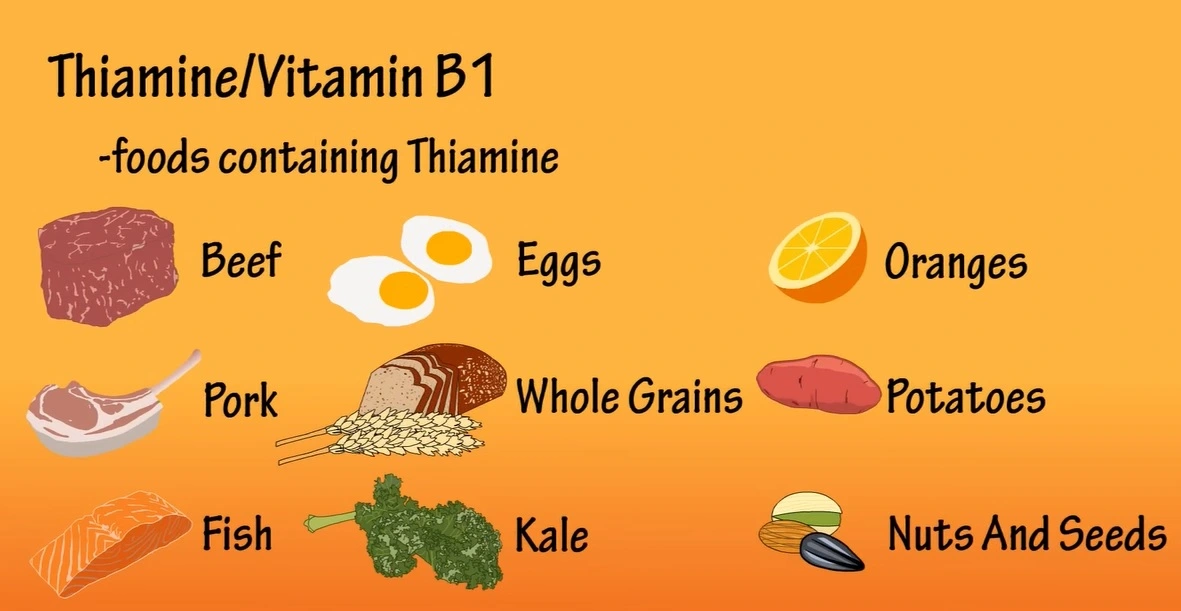Introduction
Vitamin B1, also known as thiamine, is a vital nutrient that plays a crucial role in maintaining our overall health. It is one of the eight essential B vitamins that our body needs to convert food into energy. In this blog post, we’ll delve into the importance of B1 Vitamin its benefits, sources, and much more. Whether you’re a health enthusiast or just curious about vitamins, this guide will provide you with everything you need to know about Vitamin.
What is Vitamin B1?
B1 Vitamin, or thiamine, is a water-soluble vitamin that is part of the B complex group. It is essential for energy production, nerve function, and the metabolism of carbohydrates, proteins, and fats. Our bodies cannot produce B1 Vitamin on their own, so it must be obtained through diet or supplements.
Benefits of Vitamin B1
1. Energy Production
Vitamin B1 is crucial for converting carbohydrates into energy. This energy is necessary for our body’s cells to function properly.
2. Nerve Function
Thiamine plays a significant role in the health of our nervous system. It helps in the transmission of nerve signals, ensuring proper muscle function and coordination.
3. Metabolism
It aids in the metabolism of proteins and fats, making it a key player in maintaining a healthy metabolism.
4. Heart Health
Vitamin B1 supports cardiovascular health by ensuring proper heart function and blood circulation.
5. Cognitive Function
Adequate levels of thiamine are associated with improved cognitive function and a lower risk of neurodegenerative diseases.

Sources of Vitamin B1
To ensure you get enough B1 Vitamin, include these foods in your diet:
- Whole grains (brown rice, oats, barley)
- Legumes (beans, lentils, peas)
- Nuts and seeds (sunflower seeds, flaxseeds)
- Pork
- Fish (trout, tuna)
- Enriched cereals and bread
- Potatoes
- Eggs
Signs of Vitamin B1 Deficiency
Vitamin B1 deficiency can lead to several health issues. Here are some signs to watch out for:
- Fatigue and weakness
- Irritability and mood changes
- Nerve damage leading to tingling or numbness in the hands and feet
- Poor appetite
- Muscle cramps
- Memory problems
Severe deficiency can result in conditions like beriberi and Wernicke-Korsakoff syndrome, which are serious health issues that require medical attention.
Daily Recommended Intake
The recommended daily intake of B1 Vitamin varies based on age, sex, and life stage. On average:
- Adult men: 1.2 mg/day
- Adult women: 1.1 mg/day
- Pregnant and breastfeeding women: 1.4 mg/day
Can You Take Too Much Vitamin B1?
B1 Vitamin is water-soluble, meaning excess amounts are usually excreted through urine. This makes it less likely to cause toxicity. However, it’s always best to stick to the recommended daily intake unless advised otherwise by a healthcare professional.
Supplementing with Vitamin B1
While it’s best to get your nutrients from a balanced diet, supplements can be helpful, especially for individuals with certain health conditions or dietary restrictions. B1 Vitamin supplements are available in various forms, including tablets, capsules, and injections. Always consult with a healthcare provider before starting any new supplement regimen.
FAQs about Vitamin B1
Q1: What is the primary function of Vitamin B1?
The primary function of Vitamin is to convert carbohydrates into energy, which is essential for our body’s cells to function properly.
Q2: Can a Vitamin B1 deficiency be serious?
Yes, a deficiency in Vitamin can lead to serious health conditions like beriberi and Wernicke-Korsakoff syndrome, which affect the nervous system and brain.
Q3: What are some common sources of Vitamin B1?
Common sources include whole grains, legumes, nuts and seeds, pork, fish, enriched cereals, and potatoes.
Q4: How much Vitamin B1 do I need daily?
The recommended daily intake is 1.2 mg for adult men and 1.1 mg for adult women. Pregnant and breastfeeding women need 1.4 mg per day.
Q5: Can I get enough Vitamin B1 from my diet alone?
Yes, most people can get enough Vitamin from a balanced diet that includes a variety of foods like whole grains, meat, fish, and legumes.
Q6: Is it safe to take Vitamin B1 supplements?
Vitamin B1 supplements are generally safe, but it’s best to consult with a healthcare provider before starting any new supplement, especially if you have health conditions.
Q7: What happens if I take too much Vitamin B1?
Since Vitamin is water-soluble, excess amounts are typically excreted through urine, making toxicity rare.
Q8: Are there any side effects of B1 Vitamin supplements?
Side effects are uncommon, but some people might experience allergic reactions or gastrointestinal issues. Always follow the dosage instructions.
Q9: Can Vitamin B1 help with energy levels?
Yes, Vitamin is crucial for energy production and can help improve overall energy levels by converting food into usable energy.
Q10: How can I ensure I’m not deficient in B1 Vitamin?
Ensure you’re eating a balanced diet rich in whole grains, legumes, nuts, seeds, meat, and fish. If you have dietary restrictions, consider talking to a healthcare provider about supplements.
Vitamin B1 is an essential nutrient that supports various bodily functions, from energy production to nerve health. Ensuring you get enough thiamine through your diet or supplements can help maintain your overall health and well-being. Keep an eye out for deficiency signs, and remember that a balanced diet is the key to obtaining all the necessary vitamins and minerals your body needs.
